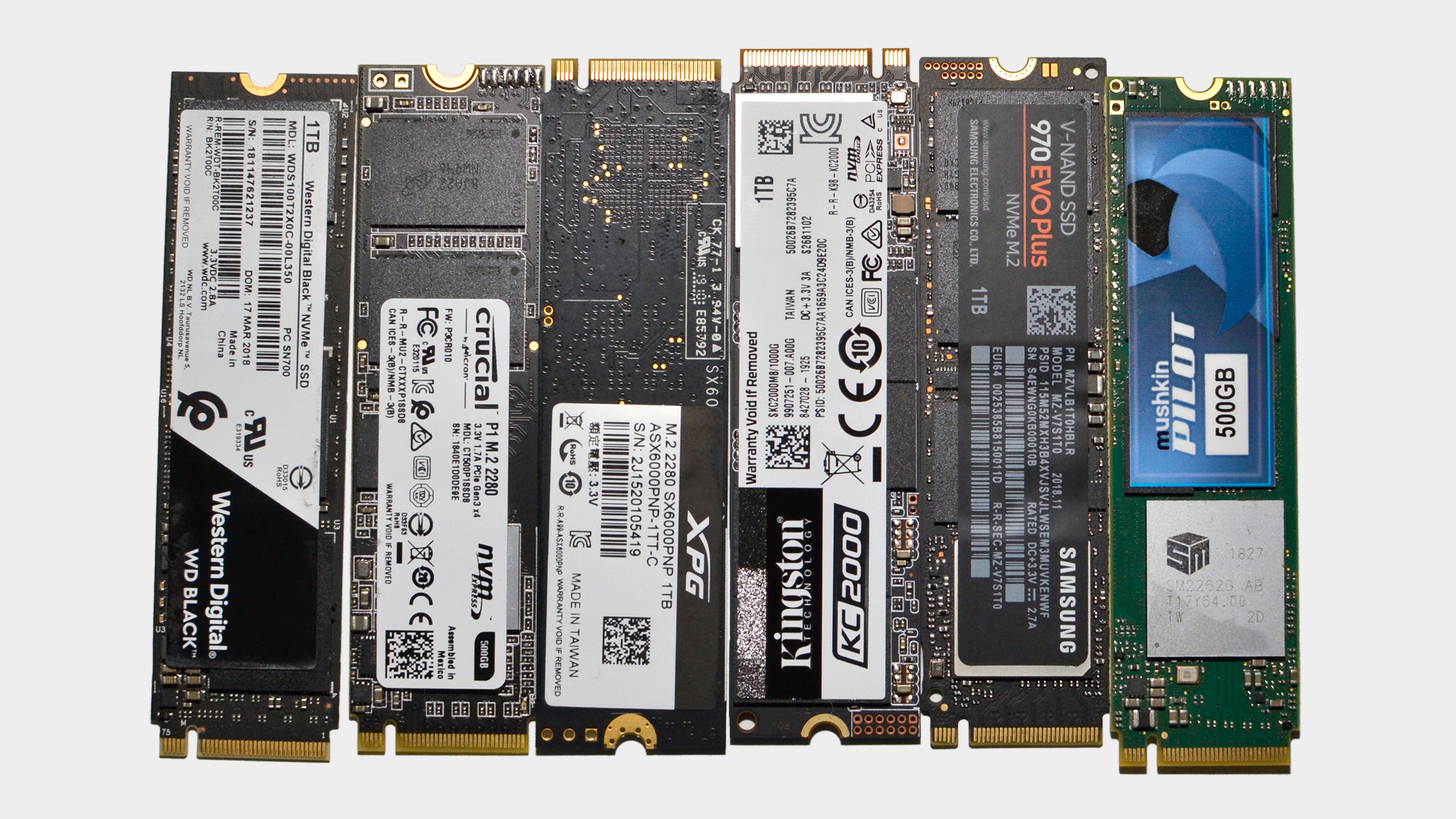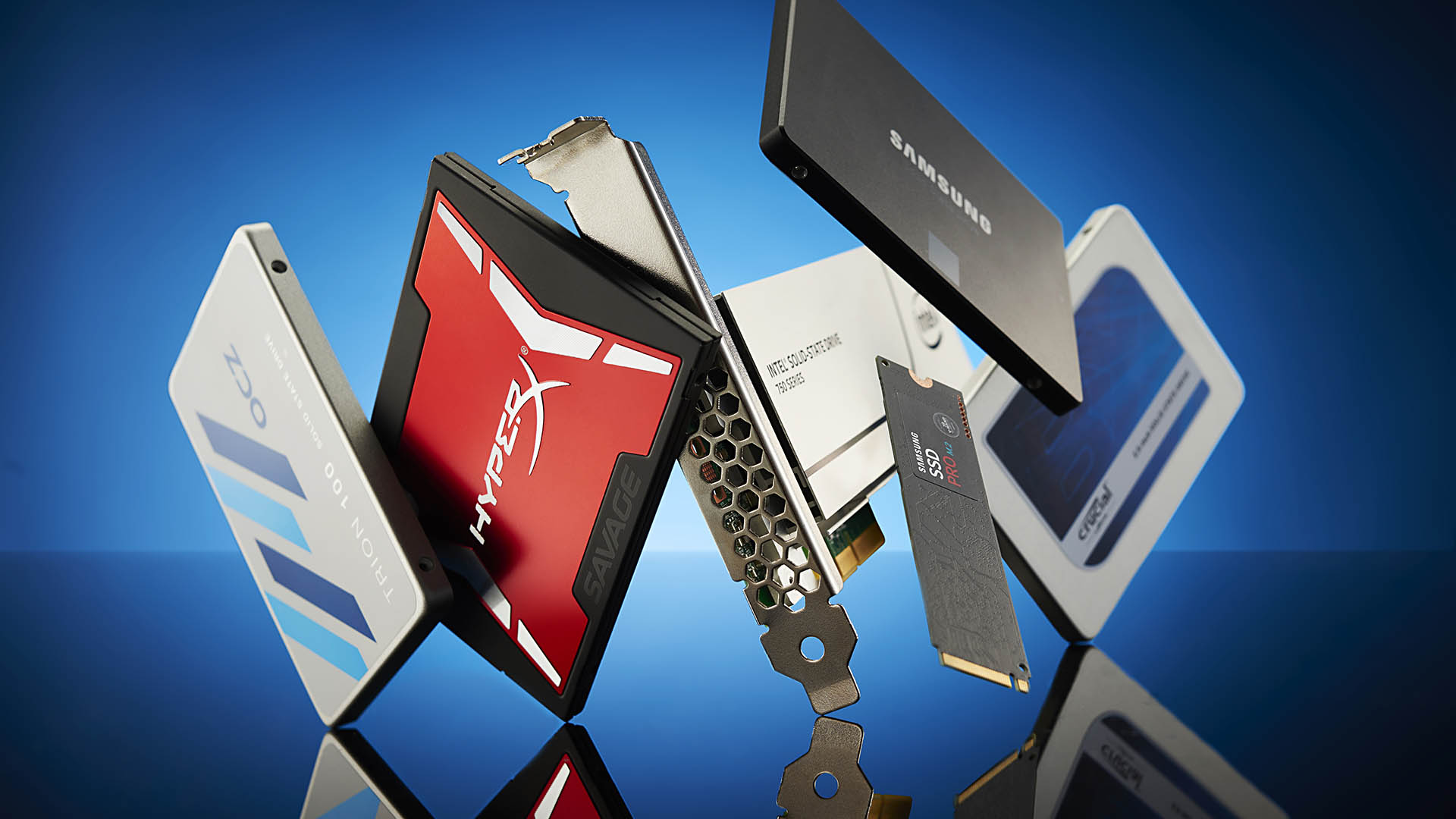Your SSD is fast, but it's got a dirty side
They're not what you'd call green products.

Every PC user appreciates an SSD. They're fast, they sip power, they're tiny, and they don’t make any noise. The stalwart mechanical hard drive isn't going anywhere though, at least for the next few years, thanks to their density and $/GB advantage. Turns out, those aren't the only advantages the HDD has. That HDD may have a lower lifetime carbon footprint too.
According to a study carried out by the University of Wisconsin-Madison and the University of British Columbia (via Tom's Hardware), SSD manufacturing is quite an intensive process. The cost of NAND flash, the controller chips, and all the advanced components is high, as are the energy requirements to produce them.
This is because many of the parts are highly advanced—it's not just the manufacturing of the drives themselves, but all of the underlying equipment, raw materials and chemicals.
In fact, SSD's are so carbon-intensive they reportedly have by far the largest carbon footprint of any other PC component, making up 38% of a typical PC, followed by the motherboard at 17% and the CPU at just 4%. Enlightening stuff.

Best SSD for gaming: the best solid state drives around
Best PCIe 4.0 SSD for gaming: the next gen has landed
The best NVMe SSD: this slivers of SSD goodness
Best external hard drives: expand your horizons
Best external SSDs: plug in upgrades for gaming laptops and consoles
The researchers further attempted to measure the carbon footprint of SSDs and HDDs in general use. They concluded that a 1TB HDD emits 99 kg of CO2 over five years and 199 kg over 10. This compares to a 1TB SSD at 184 kg and 369 kg respectively. it's hard to say how the SSD loses the battle though, as its idle power consumption will be much lower and its burst power duration would also be a lot shorter. Endurance and replacement cost would likely count against the SSD, however. Controlled testing would certainly be beneficial.
So, while it makes sense that SSDs have a high carbon footprint given their advanced nature, the overall impact of the parts that make up our PCs needs more research. The entire industry could do with having an eye on energy efficiency, from manufacturing through the life of the product. Clean and green technologies and production methods aren't just desirable from an environmental standpoint, they can be a strong component of a product's marketing too.
SSDs aren't going anywhere. If anything, they will continue to take away the market share of HDDs. Personally, I've never even considered the environmental impacts of an SSD vs a HDD. If nothing else, the study points out the need to keep pushing the development of renewable energy technologies. Reducing carbon emissions is something we should all be getting behind.
The biggest gaming news, reviews and hardware deals
Keep up to date with the most important stories and the best deals, as picked by the PC Gamer team.

Chris' gaming experiences go back to the mid-nineties when he conned his parents into buying an 'educational PC' that was conveniently overpowered to play Doom and Tie Fighter. He developed a love of extreme overclocking that destroyed his savings despite the cheaper hardware on offer via his job at a PC store. To afford more LN2 he began moonlighting as a reviewer for VR-Zone before jumping the fence to work for MSI Australia. Since then, he's gone back to journalism, enthusiastically reviewing the latest and greatest components for PC & Tech Authority, PC Powerplay and currently Australian Personal Computer magazine and PC Gamer. Chris still puts far too many hours into Borderlands 3, always striving to become a more efficient killer.

